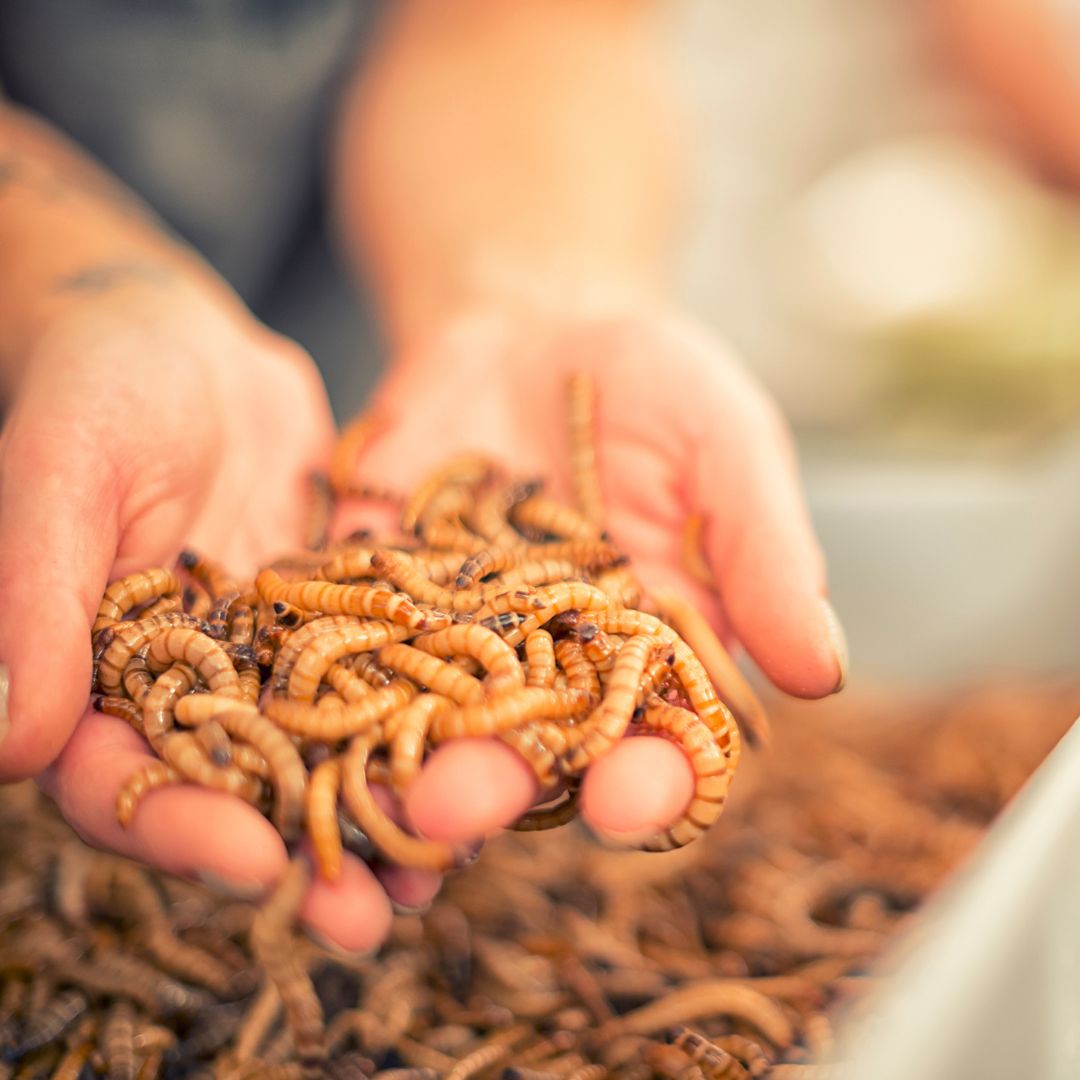Grower insights guiding the next Rice RD&E Plan

 INSECTS / Monday, 24 June 2024
INSECTS / Monday, 24 June 2024 
BSFL offer promising solutions for Australian agriculture due to their rich nutritional composition and potential for value addition. The report discusses crucial aspects of postharvest processing techniques for BSFL and identifies several strategies to reduce microbial contamination; revealing that methods such as hot air-drying help to reduce moisture and maintain the nutritional value of black soldier fly larvae (BSFL), making them last longer. It also found optimal fractionation techniques to extract different useful ingredients from BSFL, like protein, oil, and chitin, which can be used to make high-quality products such as pet and animal feed.
AgriFutures Australia Senior Manager, Emerging Industries, Dr Olivia Reynolds explained that in Australia, BSFL are typically sold as whole dried larvae or in the form of meal. By leveraging BSFL’s nutritional benefits and versatility, the value-added fractions could enhance the economic viability of growing BSFL and offer novel ingredients for various industries.
“BSFL are integral to a circular economy, efficiently converting food waste with a low carbon footprint. The resulting products have diverse applications, such as providing a sustainable protein and nutritional source for animal feed, for example offering an alternative to traditional feeds like fish meal.
“By addressing critical challenges in postharvest processing and value addition in Australia, this research also highlights the potential of BSFL as a future human food source, capable of addressing protein and nutrition deficiencies,” Dr Reynolds said.
Australia’s edible insect industry has considerable potential commercially; however growth has been a slow and sometimes challenging process, but Dr Reynolds remains optimistic. She believes that the report’s findings, together with existing knowledge and a recent announcement of a $2 million investment in research, development and extension (RD&E) for the industry, will serve as a catalyst for scaling up the industry.
“Growing the emerging industry has been a central focus for us,” Dr Reynolds said. “By leveraging existing and recent investment announcements, we have been aiming to improve the industry’s growth potential through collaborations with both domestic and international partners which aims to address some of the social acceptance and foundational challenges the industry has been facing.”
One such partner is BuggyBix, an insect-based pet food company that utilise insects as a protein source in their pet food products. They have leveraged AgriFutures RD&E investments, the results and patent (A composition for pet food and method of producing the same) which are available to all, to produce commercial products for the pet food industry.
BuggyBix Founder and CEO, Mr Shaun Eislers, said that their ongoing relationship with AgriFutures has been instrumental in completing the foundational research required to inform their product development.
“The latest body of research into BSFL has built on our knowledge base and deepened our understanding of post-harvest processing techniques and shelf life,” said Mr Eislers. “This is of great benefit from both a product assurance and supply chain perspective.
“The research into the identification and understanding of optimal fractionation techniques has also provided us with new insights and associated commercial opportunities both within and adjacent to the pet food industry, which we are currently exploring.”
Mr Eislers explained that his experience in the industry has shown that Australia is much slower at adopting edible insects when compared to markets such as Asia or Europe.
“At present, edible insects remain largely untapped as potential food and feed sources in Australia. Many Australians are reluctant to embrace edible insects due to existing perceptions and safety concerns,” Mr Eislers said.
According to Mr Eislers, the commercial opportunities within the edible insect industry are broad and despite Australia’s clean, green reputation and novel entrepreneurship in this space; the proven potential of the industry and earning a social license has been an ongoing challenge.
“Earning our social license and acceptance with pet owners is an ongoing commitment. This continues to develop and is supported by our science-led approach, which is complemented by our work with AgriFutures and Western Sydney University.
”Australia has some fantastic innovative minds ready to capitalise on opportunities emerging from research projects like this one, and we believe this body of research will enable us to improve our efforts at market education and grassroots community building.” Mr Eislers explained.
While Australia may lag behind other markets in embracing edible insects, Mr Eislers’ optimism that ongoing collaboration between funding bodies, in this instance AgriFutures, research institutions, commercial partners such as himself, and innovative entrepreneurs will pave the way for broader acceptance and adoption of insect-based products. These collaborations promise an expanded range of products and commercial opportunities.
Click here to learn more about the Nutritional qualities of black soldier fly larvae.
View more information on AgriFutures Emerging Industries Program here
Subscribe to the AgriFutures Emerging Industries mailing list here
 CHICKEN MEAT / 24.06.24
CHICKEN MEAT / 24.06.24  THOROUGHBRED HORSES / 24.06.24
THOROUGHBRED HORSES / 24.06.24  GLOBAL INNOVATION NETWORKS / 24.06.24
GLOBAL INNOVATION NETWORKS / 24.06.24  WORKFORCE AND LEADERSHIP / 24.06.24
WORKFORCE AND LEADERSHIP / 24.06.24